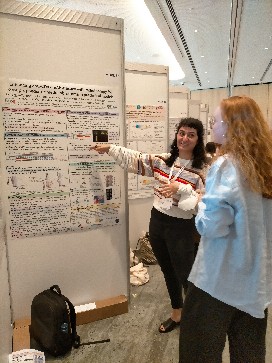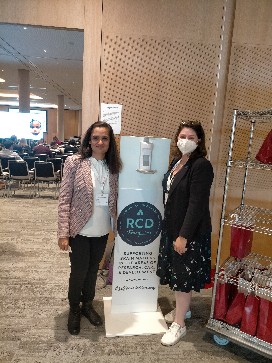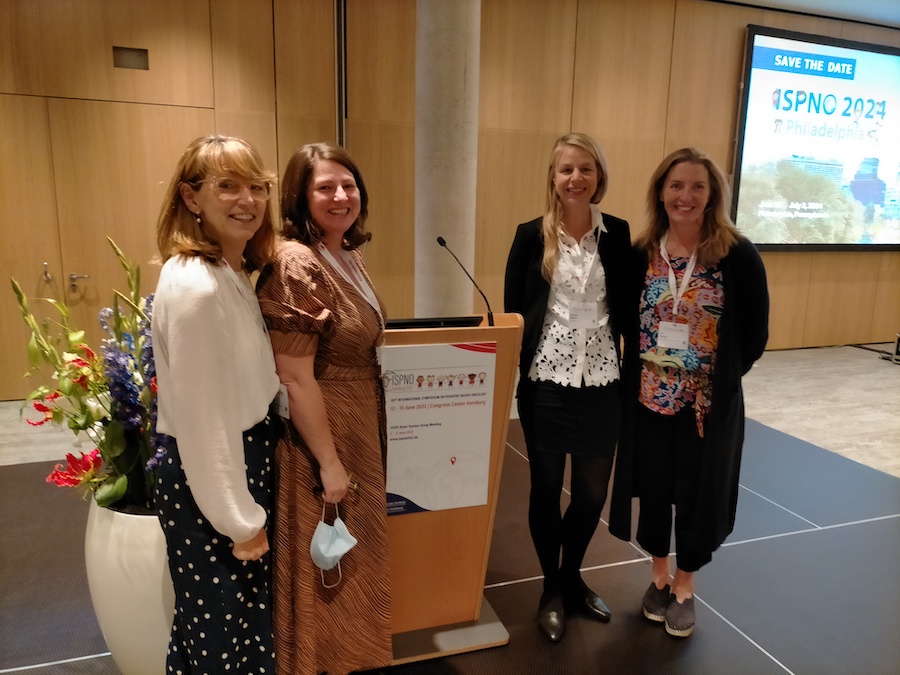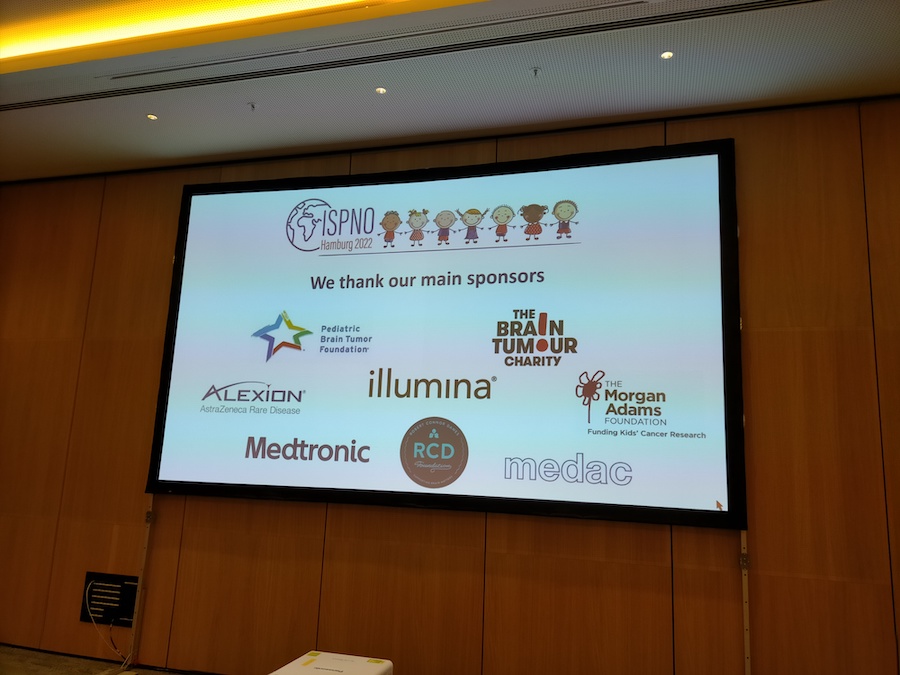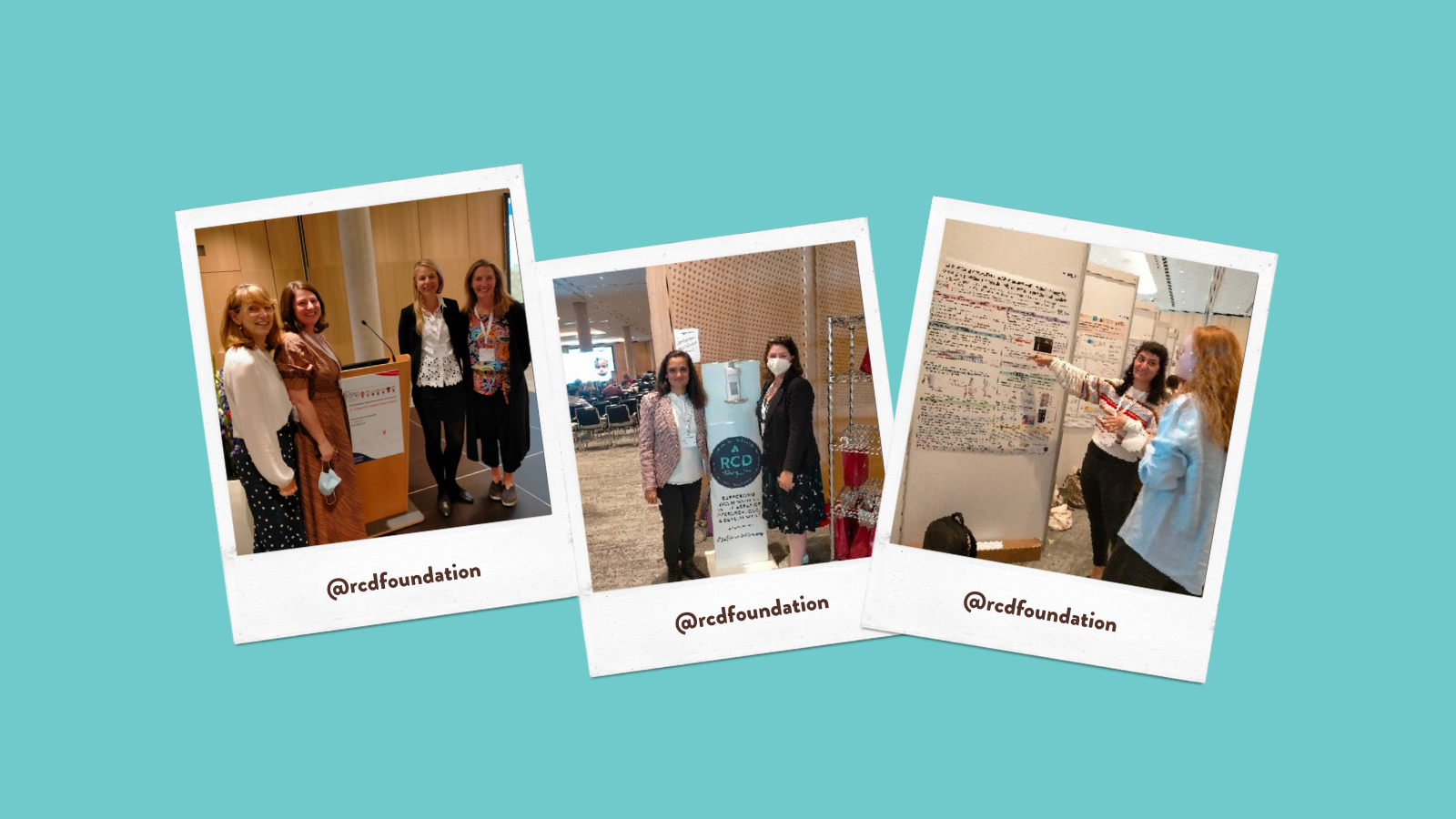
RCD Wrap Up: International Symposium on Paediatric Neuro-Oncology (ISPNO)
The Robert Connor Dawes (RCD) Foundation proudly sponsored the 20th International Symposium on Paediatric Neuro-Oncology (ISPNO) in Hamburg, Germany this June. The conference attracted more than 400 attendees and was held at the Congress Centre from the 12th to 15th June. The program was extensive covering clinical and academic aspects of many different tumour types.
RCD sponsored the Immunotherapy and Immune Microenvironment session in which Professor Ron Firestein (also funded by RCD), presented his lab’s work on the Childhood Brain Cancer Cell Line Atlas which received great interest from his international peers. Similarly, the RCD and CERN Fellow, Dr Kendra Maas from the Hopp Children’s Tumor Center Heidelberg (KiTZ) and German Cancer Research Center (DKFZ), spoke about the significance of extracellular vesicle pathways in ependymoma oncogenesis.
In addition, RCD funded six travel grants for young Australian paediatric brain cancer researchers to present their work and network with peers. Doctor Hetal Dholaria from the Telethon Kids Institute in Perth gave an oral presentation on exploiting DNA damage response inhibitors to enhance radiation efficacy in medulloblastoma models whilst Doctor Holly Holliday from the Children’s Cancer Institute (NSW) showed data indicating that FACT and BET inhibition is a promising therapeutic strategy for Diffuse Midline Glioma H3K27. Doctor Laura Genovesi’s poster demonstrating the loss of heterogeneity and induced differentiation in response to CDK4/6 inhibition in sonic hedgehog Medulloblastoma attracted significant interest. Likewise, Dr Zahra Abbas’ poster showing enhanced efficacy using anti-CD47 monoclonal antibody therapy with radiotherapy for group 3 medulloblastoma in pre-clinical models was well attended. We were so proud of the Australian researchers contributions which were highly competitive on the international stage.
RCD representatives also met with interstate and international collaborators to conceive a new data project addressing the gaps we identified in our workshop with Australian Paediatric Brain Cancer Researchers, The Children’s Brain Tumour Network (CBTN) and the Children’s Hospital of Philadelphia (CHOP). We are very excited about progressing this further.
